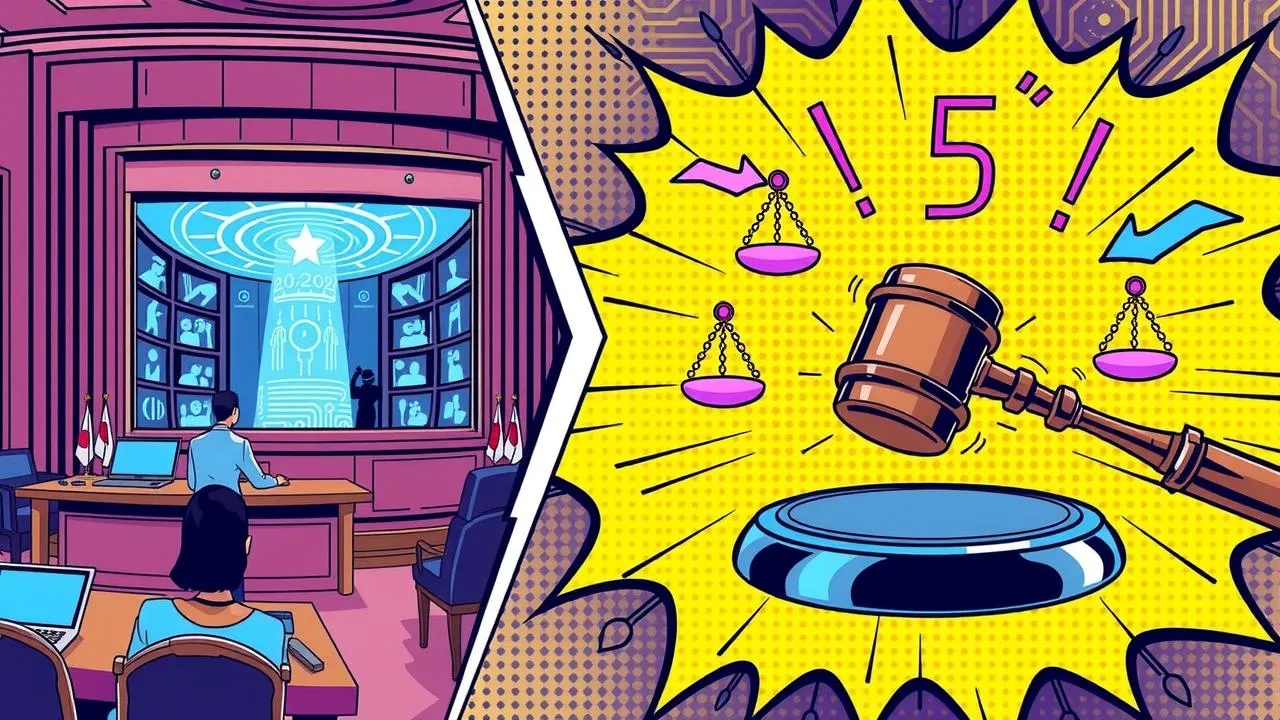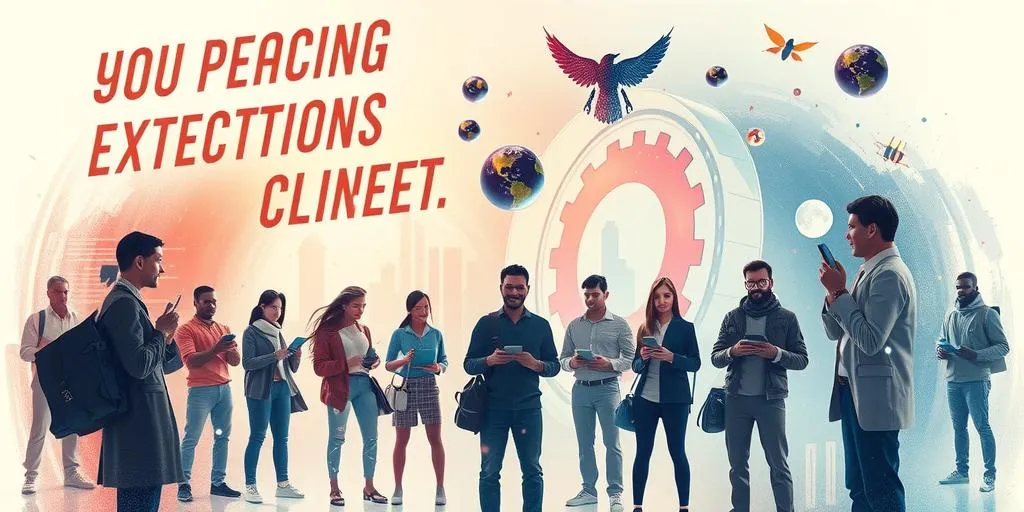Now Reading: Understanding the Role of a Lawyer in 2025: What You Need to Know
-
01
Understanding the Role of a Lawyer in 2025: What You Need to Know
Understanding the Role of a Lawyer in 2025: What You Need to Know

As we head into 2025, the role of a lawyer will undergo significant changes driven by technology and shifting client needs. Lawyers will increasingly use tasks like legal research and document review powered by AI, freeing them up for strategy and direct client interaction. Clients will expect more transparency and personalized services, valuing clear communication about billing and case management. With the growth of remote work, many lawyers will operate in virtual environments, making digital skills essential. Additionally, a stronger focus on diversity and continuous education will shape how lawyers practice in this evolving landscape. Adapting to these new realities is key for future success.
1. Technological Changes Shaping the Legal Field

As we approach 2025, the legal field is undergoing a significant transformation driven by technological advancements. Artificial intelligence (AI) and automation are at the forefront, enabling lawyers to streamline processes such as document review and legal research. For instance, AI tools can quickly analyze vast amounts of data, allowing lawyers to focus on strategic decision-making rather than time-consuming tasks. Additionally, blockchain technology is emerging as a critical tool in securing transactions and creating smart contracts, particularly in real estate and corporate law. Lawyers will need to familiarize themselves with these technologies to effectively advise their clients.
Moreover, virtual reality (VR) and augmented reality (AR) are also making inroads into the legal sector. These technologies could be utilized in courtroom simulations or during client consultations, offering immersive experiences that enhance understanding and engagement. By leveraging these innovations, lawyers can improve their service delivery and client interactions, ultimately making legal processes more efficient and accessible.
- Artificial Intelligence and Legal Research
- Blockchain and Smart Contracts
- Legal Tech Startups and Innovation
- Cybersecurity in Legal Practices
- E-discovery Tools and Automation
- Virtual Reality in Client Consultations
- Digital Law and Regulatory Compliance
2. Meeting Evolving Client Expectations
Clients in 2025 will demand more than just legal expertise; they will expect a high level of service, transparency, and personalized solutions. The shift towards transparency in billing is already underway. Clients will want to see detailed breakdowns of costs and clear communication about how their money is being spent. For instance, law firms may adopt client portals where clients can track time spent on their cases in real-time, enhancing trust and satisfaction.
Moreover, as clients become more informed and tech-savvy, they will be looking for legal services that are tailored to their specific needs. This could mean developing customized legal strategies that take into account the unique circumstances of each case. For example, a small business owner may require a different approach compared to a corporate client, and lawyers will need to adapt their services accordingly.
Another significant trend will be the shift towards alternative fee structures. Many clients will prefer fixed fees or subscription models that provide predictability in legal costs. This change will push lawyers to rethink their pricing strategies, focusing on delivering value rather than simply billing hours. For instance, a personal injury lawyer might offer a contingency fee arrangement, allowing clients to pay only if they win their case.
Overall, meeting these evolving expectations will require lawyers to enhance their communication skills, embrace technology, and offer flexible pricing options that align with client needs.
| Client Expectation | Lawyer Response |
|---|---|
| Demand for Transparency and Communication | Adopt clear communication strategies and utilize software for case tracking |
| Personalized Legal Services | Provide tailored legal solutions to meet specific client needs |
| Alternative Fee Structures | Implement fixed fees, subscription models, and contingency fees for predictable pricing |
3. The Rise of Remote Work in Law
The shift to remote work in the legal industry is not just a temporary trend; it’s becoming a fundamental aspect of how lawyers operate. By 2025, many legal professionals will be working from home or in hybrid setups, which means they will need to master various digital tools for collaboration and client communication. This includes using video conferencing software for meetings, secure file-sharing platforms for document exchange, and project management tools to keep track of tasks and deadlines.
Virtual law firms are also on the rise, offering legal services entirely online. This model allows lawyers to reach clients beyond geographical limitations, providing flexibility and potentially lower costs. However, attorneys will face the challenge of establishing a strong online presence and ensuring that they maintain client trust in a digital landscape. For instance, a lawyer might use a client portal where clients can securely access their case information and communicate directly, making the process more efficient.
As remote work becomes the norm, lawyers must also be adept at managing work-life balance, ensuring that they remain productive without the traditional office structure. This new environment will require effective self-management skills and the ability to set boundaries, as the lines between personal and professional life can blur when working from home.
4. Emphasizing Diversity and Inclusion
Law firms in 2025 will place a strong emphasis on diversity and inclusion, understanding that a mix of perspectives fosters creativity and innovation. This shift means that future lawyers will need to not only champion these initiatives but also actively engage in practices that support them. For instance, law firms might implement mentorship programs aimed at underrepresented groups, helping to nurture diverse talent. Furthermore, cultural competence will become essential, as lawyers must understand and address the unique legal needs of clients from various backgrounds. As society becomes more diverse, lawyers who can navigate these complexities will be better positioned to build trust and rapport with their clients.
As we approach 2025, lawyers will face a rapidly changing regulatory landscape that requires them to be agile and informed. New laws and regulations will emerge, especially in areas like data privacy and cybersecurity, driven by technological advancements and societal shifts. For instance, the rise of artificial intelligence in legal practices will prompt regulators to establish guidelines on ethical AI use, impacting how lawyers conduct research and analysis. Additionally, the increasing focus on data protection laws, such as those similar to the GDPR in Europe, will necessitate that lawyers not only understand these laws but also ensure their clients comply with them. Staying ahead of these regulatory changes will be crucial for lawyers, as any misstep could result in legal repercussions for both them and their clients. Continuous education about these evolving regulations will be essential, and lawyers may need to participate in specialized training or collaborate with compliance experts to navigate this complex terrain effectively.
6. The Importance of Continuous Learning
As the legal landscape evolves, continuous learning becomes essential for lawyers. With technology advancing rapidly, staying updated on the latest tools and techniques is crucial. For instance, a lawyer who understands AI can streamline their workflows and improve client service. Additionally, knowledge in areas like data privacy, cybersecurity, and blockchain will be increasingly valuable. Lawyers should seek out courses, webinars, and certifications to enhance their skills. Networking with professionals from different fields can also provide insights that enrich a lawyer’s practice. Embracing a mindset of lifelong learning will enable lawyers to adapt to changes and meet the diverse needs of clients effectively.
7. Globalization and Cross-Border Legal Issues
As businesses increasingly operate on a global scale, lawyers in 2025 will face the challenge of navigating complex cross-border legal issues. This will require a deep understanding of international laws, treaties, and regulations in various jurisdictions. For example, a company looking to expand into Europe will need legal guidance on compliance with the General Data Protection Regulation (GDPR) and other local laws. Lawyers will also need to be adept at handling disputes that arise from international transactions, which may involve multiple legal systems. The ability to collaborate with foreign legal professionals and interpret diverse legal standards will be crucial. This globalization of legal services will not only broaden the scope of practice for lawyers but will also enhance their ability to serve clients with international interests.
Frequently Asked Questions
1. What new technologies will lawyers use in 2025?
In 2025, lawyers are likely to use more advanced technologies like artificial intelligence for legal research, automated document creation, and client communication tools to streamline their work and improve efficiency.
2. How will the role of a lawyer change in the future?
The role of a lawyer will evolve to include more advisory work, focusing on problem-solving and strategic planning, rather than just traditional court appearances.
3. What skills will be important for lawyers to have in 2025?
In 2025, lawyers will need strong digital literacy, critical thinking, and interpersonal skills to effectively collaborate with clients and utilize new technology.
4. How can clients find the right lawyer in 2025?
Clients in 2025 can find the right lawyer by using online platforms that compare lawyers based on their specialties, reviews, and client ratings, along with services that offer virtual consultations.
5. What areas of law will be most important by 2025?
By 2025, areas like technology law, environmental law, and intellectual property law will gain importance due to rapid advancements in technology and shifting global concerns.
TL;DR In 2025, lawyers will navigate significant changes driven by technology, evolving client expectations, and diverse practices. Key trends include the integration of AI and blockchain in legal processes, the rise of remote work, and a strong emphasis on diversity and inclusion. Lawyers will need to adapt to new regulations, prioritize continuous learning, and manage globalization’s impact on legal services. Embracing these changes will be crucial for future success in the legal profession.












